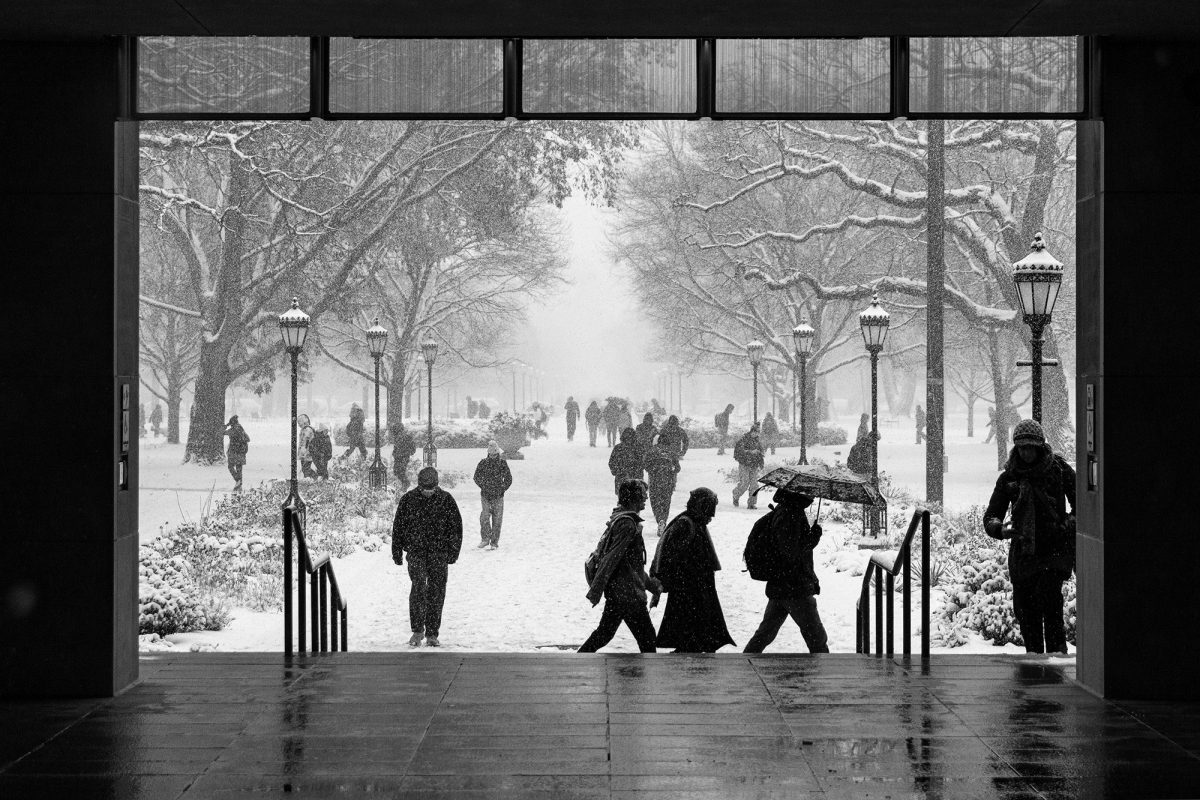At a roundtable discussion entitled “The Politics of Mental Health,” held by Leaders of Color at the Institute of Politics (IOP) on Tuesday, February 11, students explored how mental health stigma and common misunderstandings perpetuate mental illness, globally and on campus. The discussion explored the rhetoric and development of self-care in the modern, capitalist age, as well as nuances of mental health, including identity, ability, stigma and the economic consumption of self-care.
Second-year Dayo Adeoye presented and guided the discussion, which was part of the IOP’s Politics and Identity series. Adeoye began with a quote by writer and civil rights activist Audre Lorde: “Caring for myself is not self-indulgence, it is self-preservation, and that is an act of political warfare.”
Adeoye explored how physical desires, including self-care, are suppressed by society for capitalist productivity and political cooperation. Recently, she said, society has both exacerbated mental health issues and commodified the rise in mental illness into a highly profitable industry of self-care. Google searches for the term “self-care,” for instance, spiked after the 2016 election.
The group then discussed the lack of diversity and economic accessibility in the self-care market today, and related the urge to use mental health as a mode of productivity to the culture of stress on campus. “They are two sides of the same coin. I guess that's my main thesis: you can’t separate mental health from politics,” Adeoye said.
Adeoye later asked attendees to raise their hands “if your mental wellness has been at its peak while at UChicago.” The group went quiet and extended cursory glances and grins; no one raised a hand. During that part of the talk, students identified UChicago as a microcosm for common misconceptions of mental health and society’s frequent pitfalls when addressing the concern.
Participants also discussed how some states, such as Massachusetts, have approached the mental health crisis as a biological issue that can be explained by genetics and cured by medical and pharmaceutical resources. The group agreed that this solution lacked understanding of the role that social systems play in mental illness.
Students began to express frustrations with what they see as the University’s inadequate treatment of mental illness on campus. One student said he felt that, at the University, “there’s a tension between seeing someone as an individual capable of reason and someone struggling with mental health.” He said the rigor of UChicago and its work culture can exacerbate mental illness for students and lead to stigma.
The new student wellness center, set to bring together services currently spread across campus in fall 2020, was highlighted during the conversation. Some attendees at the talk felt its advertisement is an act of tokenism from the University administration to address student grievances by expanding resources and intake, rather than tending to the root problem of campus stress culture. Attendees also worried that the center would perpetuate stress culture by cornering self-care into an isolated area of campus. Someone at the discussion described the administration’s outlook on self-care with the attitude, “You poison yourself and then you go get the antidote.”
A female student shared one experience with the Student Counseling Service (SCS): After counseling could not fulfill her request for an appointment, she attended a “Let’s Talk” walk-in therapy session expecting to meet with a therapist from her background, but instead had to meet with a different therapist than who had been advertised. She used her experiences to imagine a mental health system in which practitioners visit student cultural centers.
The group agreed that to overcome barriers to accessing resources and to improve mental health on campus, the University should work to integrate self-care into student life, rather than treating mental health as a separate medical issue.
In a follow-up email to The Maroon, Adeoye wrote that she put together the discussion because of a conversation she had with her family, including a family member who is an executive assistant in the University administration, over winter break. Adeoye’s family did not understand the student body’s frustration with the University, including what more students wanted from the administration after the recent investment in SCS.
“Their biggest point was that schooling is never meant to be easy or fun, but with the stakes being so high and the recent deaths [during fall quarter] on campus, I was not satisfied with their opinion,” Adeoye stated. “Personally, for me, there have been many suicides of people I knew from my hometown this year alone.”
Hearing her family’s confusion about the needs and requests of students, Adeoye crafted the presentation so that students could better articulate and overcome the barriers to self-care that they experience. “What I hoped the group took away from the discussion was an understanding of how common notions of self-care and mental health can be deconstructed, as well as knowing how the idea of self-care has been an exclusionary tool that reinforces problematic rhetoric and beliefs,” she said. She also hoped the conversation would send the message that “school should definitely never be something that impedes on the health of its students.”








